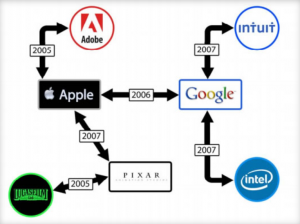Last month, Dutch telecom company, VimpelCom Limited, agreed to pay $795 million in penalties to U.S. and Dutch authorities for bribing government officials in Uzbekistan, in violation of the U.S. Foreign Corrupt Practices Act (“FCPA”) and Dutch law. VimpelCom’s CEO is facing criminal charges, government forfeiture actions were launched to recover hundreds of millions of dollars, and an independent monitor was appointed to supervise the company for at least three years.
While that case sounds egregious, massive penalties for corporate bribery are common. In recent years, Siemens AG was fined $800 million in the U.S. and $800 million in Germany for paying bribes in Argentina; Alston SA was fined $774 million for bribery in several countries; a Chinese court fined GlaxoSmithKline $500 million for bribing doctors in China; BAE settled bribery charges for $400 million; Alcoa for $380 million and Hewlett-Packard for $108 million. Continue reading






